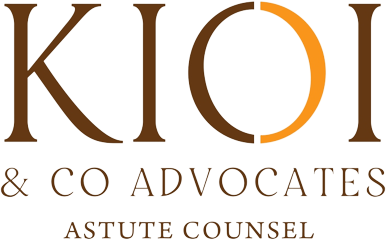
Understanding the Alternative Investment Fund (AIF)
In Kenya, the practice of pooling money to invest in various ventures is not new. Many Kenyans are familiar with informal investment structures such as chamas (investment groups) and social welfare groups. These groups have traditionally invested in businesses and projects with the goal of financial growth. However, some recent ventures have resulted in significant losses, eroding public trust due to a lack of clear regulations.
To restore confidence and ensure accountability, the Capital Markets Authority (CMA) introduced the Capital Markets (Alternative Investment Funds) Regulations of 2023. These regulations provide a framework for Kenyans to invest in “non-traditional” asset classes, such as infrastructure, real estate, private equity, and commodities, through a regulated structure known as the Alternative Investment Fund (AIF).
What is an Alternative Investment Fund?
An AIF is a collective investment scheme that privately pools funds from a minimum of two to a maximum of one hundred investors, either from Kenya or abroad, and invests these funds on their behalf according to a defined investment policy. Unlike other securities dealers, AIF managers cannot publicly solicit funds. They can only raise funds through private placements, issuing participatory interests to investors. These private placements are formalized through a placement memorandum, approved by the CMA.
How Does an AIF Work?
- Placement Memorandum
Before any investment can take place, the AIF manager must prepare and submit a placement memorandum to the CMA. This document outlines the investment strategy, purpose, and methodology of the fund. Once approved, the fund manager can then privately raise funds from investors, subject to certain conditions.
- Pooling of Funds
Funds are pooled from a select group of investors, limited to a maximum of one hundred participants. Each investor is issued a participatory interest, with a minimum investment of KES 1 million per person.
- Professional Portfolio Management
Fund managers are responsible for professionally managing the pooled investments, aiming to maximize returns and minimize risk. A trust relationship is established between the investor and the fund manager, with investments made on behalf of the participants in various enterprises, companies, or special purpose vehicles—collectively referred to as investee companies. Fund managers are required to operate under a clearly defined investment policy and strategy, which cannot be altered without the approval of both the CMA and the fund’s participants.
The Role of the Investee Company
Investments from the AIF are directed towards an investee company, which could be a business, partnership, or other corporate entity. Fund managers are accountable to their investors and must provide regular financial reports on the performance and risk management of the investee company. This transparency ensures that investors are informed about how their money is being managed and the financial health of the companies in which they have invested.
Types of Alternative Investments
According to the AIF regulations, these funds can take various forms, including:
- Debt or debt-linked funds
- Private equity or equity-linked investments
- Hedge funds
- Property funds
- Infrastructure funds
- Other alternative investment types
Requirements for Fund Managers
To operate as an AIF manager, an entity must seek approval from the CMA by submitting an application and paying a fee of KES 10,000. The fund manager must also adhere to a strict checklist that includes providing formation documents (such as trust deeds or articles of incorporation), shareholding structures, and details about key officials. They must also demonstrate they have the necessary infrastructure and human resources to manage the fund effectively.
Documentation and Transparency
A key component of operating an AIF is maintaining transparency. The fund manager must provide accurate and timely valuation reports, keeping investors informed of the net asset values and the performance of the fund’s assets. These reports must be shared quarterly, with independent annual valuations submitted to both the CMA and investors.
Exiting or Winding Up the Fund
A fund’s tenure is defined in its formation documents, and any extension requires the approval of two-thirds of its participants. If no extension is granted, the fund must be liquidated within a year of its expiration. During liquidation, the fund’s assets are sold, and proceeds are distributed to participants after settling any liabilities.
A fund can also be wound up under various circumstances, such as the revocation of the fund’s approval by the CMA, a resolution passed by participants, or a determination by the fund manager or trustee that winding up is in the best interest of participants.
Protecting Investors’ Interests
At every stage of the investment process, there are measures in place to protect investors. These include reviewing contracts, ensuring the fund complies with all legal and regulatory requirements, and conducting due diligence on the fund manager and key personnel. Investors also have the right to receive key information, such as financial reports, conflict of interest disclosures, and legal histories of the fund and its managers.
Final Thoughts
The introduction of the Alternative Investment Fund regulations by the CMA brings much-needed structure and confidence to the non-traditional investment landscape in Kenya. By enforcing clear rules for fund managers and ensuring transparency for investors, these regulations aim to open new avenues for collective investment while safeguarding public trust and promoting financial growth.
For investors, due diligence and an understanding of their rights and obligations within the fund are essential. Meanwhile, fund managers must ensure compliance with all regulations to avoid any disruption in their operations or penalties that could impact investors.

